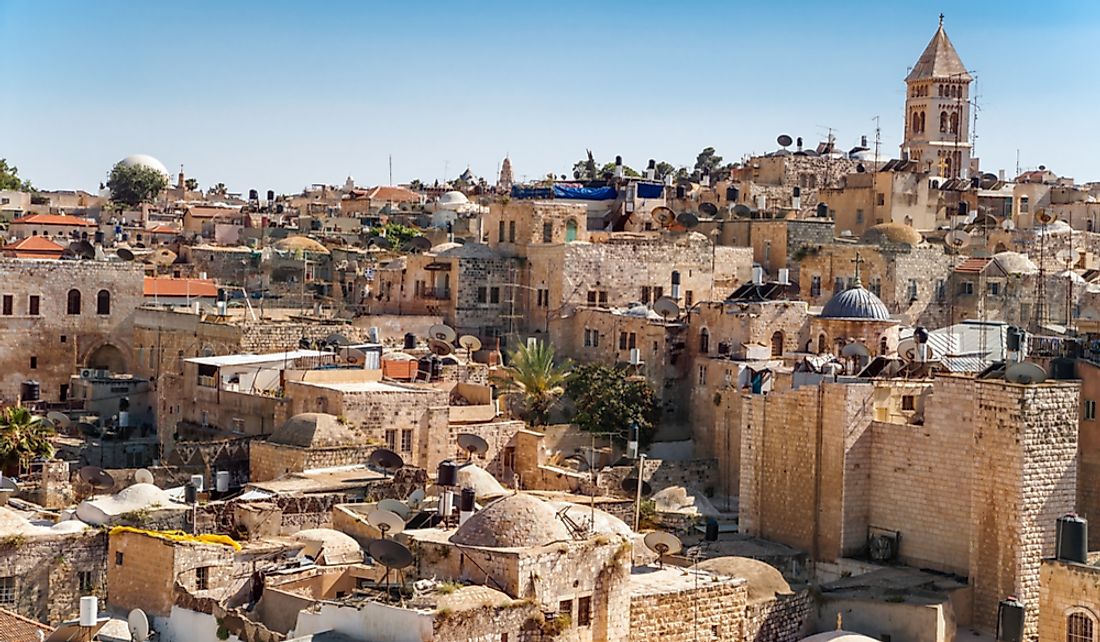How Many Times Was Jerusalem Destroyed?

The city of Jerusalem is found in the Middle East and lies between the Dead Sea and the Mediterranean Sea. Jerusalem is among the world’s oldest cities dating back to about 4500 BCE. It is regarded as holy by the three major Abrahamic faiths of Christianity, Islam, and Judaism. Similarly, the state of Israel has most of its government institutions in the city while Palestinians aspire to be a state and hope to establish their capital in the city of Jerusalem. Throughout its history, the city has been destroyed at least two times, attacked 52 times, besieged 23 times, and recaptured 44 times.
The Early History of Jerusalem
According to the archeologists, the first settlements in Jerusalem were near Gihon springs around 4500-3500 BCE and were first mentioned in about 2000 BCE in Egyptian texts. The name was recorded as Rusalimum, and it is believed that the origin of S-L-M in the name could refer to peace which is comparable to the word salam in modern Arabic, shalom in the Hebrew language, or Shalim, which refers to the god of dusk among the Canaanites. Archaeological evidence shows that the Canaanites in around 17th century BCE had constructed huge walls on the east side of Jerusalem which served as a protection of the ancient water systems.
According to the accounts of the Bible, the history of Jerusalem begins at around 1000 BCE, when King David conquered the Canaanites, who at the time were known as the Jebusites, and captured the city which at the time was known as Jebus. The capital of Israel was moved from Hebron to Jerusalem and became known as the city of David, where he ruled for 40 years, and his son Solomon took leadership and built a magnificent temple. After the succession of Solomon’s son Rehoboam in around 930 BCE, the nation was divided into two kingdoms. The kingdom of Israel had the cities of Samaria and Shechem while the kingdom of Judah had the city of Jerusalem. In around 722 BCE, the Assyrians attacked the northern kingdom or the kingdom of Israel and took them captives.
First Destruction of Jerusalem
In 597 BCE, King Nebuchadnezzar of Babylon laid siege on the kingdom of Judah and installed Zedekiah as the king when he was only 21 years old. Zedekiah later revolted against Babylon and joined an alliance with Egypt. King Nebuchadnezzar responded by attacking Judah and laying siege in December 589 BCE. Finally, Nebuchadnezzar destroyed the walls of the city and conquered and captured the city. Zedekiah and some of his people were captured in the plains of Jericho attempting to escape and they were taken to Riblah where he remained a prisoner in Babylon until his death. Nebuchadnezzar ordered the destruction of Jerusalem and plundered everything in the temple. The city was razed to the ground and all the loot taken to Babylon.
Second Destruction of Jerusalem
King Cyrus of Persia in 538 BCE invited Jews from Babylon to rebuild the temple in Jerusalem. The second temple was accomplished in 516 BCE when King Darius the Great was in power, 70 years after the first temple was destroyed. However, in 70 CE, Jerusalem was destroyed one more time by the Romans led by Titus, the future emperor of Rome, under the order of Emperor Nero. The Roman soldiers surrounded the city and began ransacking the city and finally led to the destruction of the temple. It is estimated that about 1.1 million people died and the majority were Jews. Those who escaped death were taken as slaves in different parts of the Roman Empire. All relics from the temple were taken to Rome where they were displayed in celebrating the victory.
Jerusalem at Present
Currently, the city of Jerusalem is still a controversial city, and tensions are still high within and around the city, confrontations are common particularly between the Palestinians and the Israeli soldiers. Several international groups and nations support the idea of dividing Jerusalem into Palestinian and Israeli sections, but getting a plan that would be agreeable to both sides is difficult. The future of Jerusalem is uncertain however the city holds great historical, religious, cultural, and political powers and will continue doing so several years into the future.











